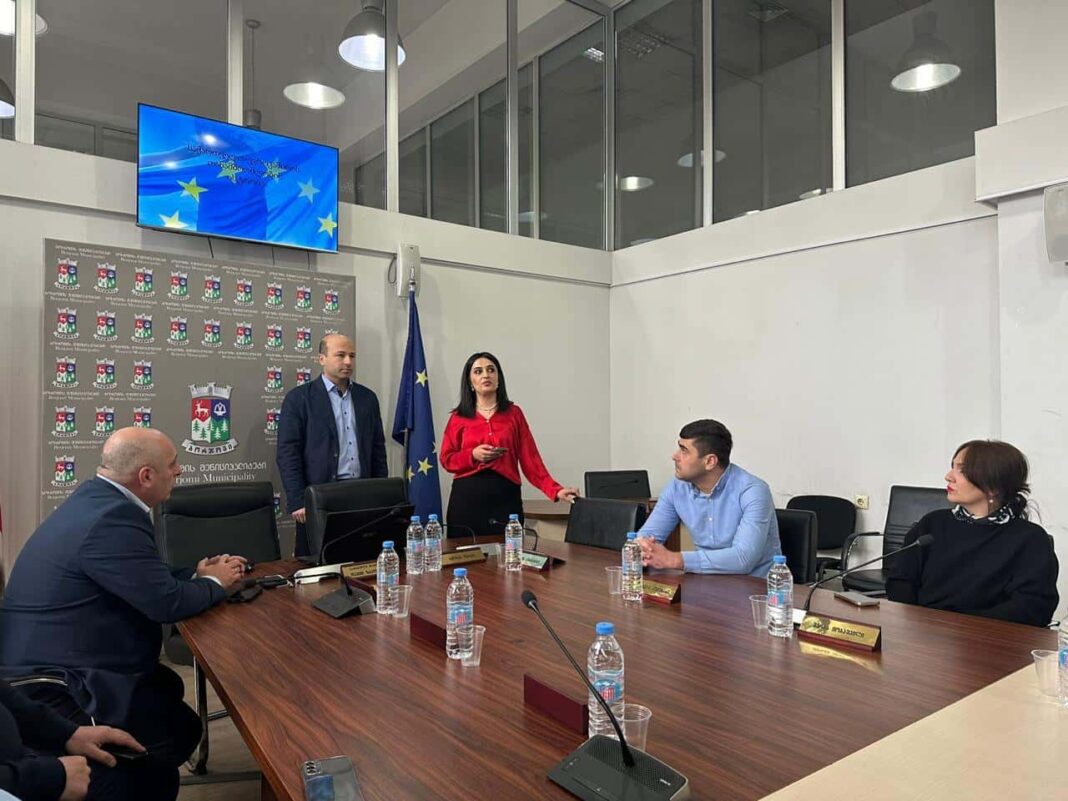Georgia: A meeting was held on the initiative of the Ministry of Foreign Affairs “Information Center about NATO and EU“, which was attended by the Chairman of the Borjomi Municipality Council David Zaalishvili, Deputy Mayor Giorgi Tabatadze and representatives of local self-government.
David Bujiashvili, Director of the EU Assistance Coordination and Sectoral Integration Department of Foreign Affairs, spoke about the dynamics of Georgia’s Eurointegration process, its importance, and prospects.
Georgia has been actively pursuing closer ties with the European Union (EU). The EU-Georgia Partnership and Cooperation Agreement serves as a foundation for cooperation, emphasizing an equal partnership despite asymmetric opportunities.
The European Neighborhood Policy has played a crucial role in shaping Georgia’s relations with the EU. The August 2008 War had an impact on both the EU and Georgian policies, influencing the trajectory of their engagement.
The Eastern Partnership framework has strengthened bilateral relations and provided a regional context for Georgia’s integration efforts.
The EU-Georgia Association Agreements and Visa Liberalization have been significant milestones in Georgia’s path toward Europeanization. These agreements aim to enhance political, economic, and social ties between Georgia and the EU.
The Eastern Partnership offers possibilities for deeper cooperation and alignment with EU norms and values. The recommendations within this framework focus on strengthening ties and promoting shared objectives.
Georgia’s Euro-Atlantic integration is closely linked to its European perspective. The country’s strategic importance lies in its commitment to democratic governance, its location at international crossroads, and its willingness to contribute to mutual security objectives.
The EU’s further evolution could influence Georgia’s prospects for membership. Understanding EU enlargement dynamics is crucial for assessing Georgia’s position.
Analyzing the EU’s enlargement process provides insights into Georgia’s journey. The Western Balkans’ integration into the EU serves as a relevant case study.
Georgia’s Eurointegration process is multifaceted, involving political, economic, and social dimensions. As the country continues its path toward European integration, maintaining informed citizen support and active participation remains essential.



